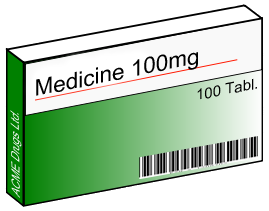 Global drug makers like Merck (NYSE: MRK) and Bristol-Myers (NYSE: BMY) have been piling into China’s drug market over the last few years in a bid to take advantage of huge new opportunities presented by the nation’s ongoing health care reform, even as growing signs emerge that risks also exist alongside the potential to make money. The latest of those risks was recently on display in the nation’s patent office, where an intellectual property law was modified to make it easier for Chinese companies to make generic versions of drugs that otherwise would still receive patent protection. (English article) Under those changes, China can permit companies to make generic versions of drugs under patent protection if Beijing determines that there is a state of emergency, or that doing so is in the public interest. The new rules, which took effect on May 1, could also let Chinese companies apply to export such generic drugs. In fact, this kind of move isn’t new, as China took similar action several years ago with European drug maker Roche’s drug Tamiflu when many worried about a bird flu epidemic with the potential to sicken and kill millions of people globally. At that time, Theraflu was one of the few drugs that had been proven effective to treat bird flu, and China pressured Roche to license the drug to several domestic firms in order to boost stocks in case of an outbreak. This new move appears to not only address similar situations to the one with bird flu, but also looks like Beijing’s way of telling the big foreign drug firms that they need to keep prices for their patented drugs at reasonable levels or risk seeing Beijing permit other domestic firms to make generic versions of those drugs. This new message would come as foreign drug makers rush to find Chinese partners for new joint ventures to take advantage of Beijing’s ongoing healthcare overhaul, which is designed to provide basic services to many of the nation’s hundreds of millions of people who otherwise would be unable to afford such services. Most major companies have jumped on the healthcare reform bandwagon, with Bristol Myers, Pfizer (NYSE: PFE) and Merck all announcing new tie-ups with Chinese partners over the last 12 months. (previous post) But China has also sent out increasing signals that its mutibillion-dollar healthcare overhaul won’t just mean lots of new free money for makers of drugs and medical equipment, indicating it intends to control the prices it pays as it overhauls the system. Beijing’s desire to control costs was on display last summer, when domestic player Simcere Pharmaceutical (NYSE: SCR), which has a tie-up with Merck, posted quarterly results that showed its revenue growth was stagnating, and blamed the government’s tough pricing policies as a major factor for stagnation. (previous post) All of this goes to show that healthcare reform will indeed bring big new growth opportunities for both domestic and foreign makers of drugs and medical equipment. But at the same time, Beijing is clearly telling everyone to temper their profit expectations, and sending signals that those who get too greedy could find their patented drugs and other proprietary products being legally copied and manufactured by domestic manufacturers and sold for much lower prices.
Global drug makers like Merck (NYSE: MRK) and Bristol-Myers (NYSE: BMY) have been piling into China’s drug market over the last few years in a bid to take advantage of huge new opportunities presented by the nation’s ongoing health care reform, even as growing signs emerge that risks also exist alongside the potential to make money. The latest of those risks was recently on display in the nation’s patent office, where an intellectual property law was modified to make it easier for Chinese companies to make generic versions of drugs that otherwise would still receive patent protection. (English article) Under those changes, China can permit companies to make generic versions of drugs under patent protection if Beijing determines that there is a state of emergency, or that doing so is in the public interest. The new rules, which took effect on May 1, could also let Chinese companies apply to export such generic drugs. In fact, this kind of move isn’t new, as China took similar action several years ago with European drug maker Roche’s drug Tamiflu when many worried about a bird flu epidemic with the potential to sicken and kill millions of people globally. At that time, Theraflu was one of the few drugs that had been proven effective to treat bird flu, and China pressured Roche to license the drug to several domestic firms in order to boost stocks in case of an outbreak. This new move appears to not only address similar situations to the one with bird flu, but also looks like Beijing’s way of telling the big foreign drug firms that they need to keep prices for their patented drugs at reasonable levels or risk seeing Beijing permit other domestic firms to make generic versions of those drugs. This new message would come as foreign drug makers rush to find Chinese partners for new joint ventures to take advantage of Beijing’s ongoing healthcare overhaul, which is designed to provide basic services to many of the nation’s hundreds of millions of people who otherwise would be unable to afford such services. Most major companies have jumped on the healthcare reform bandwagon, with Bristol Myers, Pfizer (NYSE: PFE) and Merck all announcing new tie-ups with Chinese partners over the last 12 months. (previous post) But China has also sent out increasing signals that its mutibillion-dollar healthcare overhaul won’t just mean lots of new free money for makers of drugs and medical equipment, indicating it intends to control the prices it pays as it overhauls the system. Beijing’s desire to control costs was on display last summer, when domestic player Simcere Pharmaceutical (NYSE: SCR), which has a tie-up with Merck, posted quarterly results that showed its revenue growth was stagnating, and blamed the government’s tough pricing policies as a major factor for stagnation. (previous post) All of this goes to show that healthcare reform will indeed bring big new growth opportunities for both domestic and foreign makers of drugs and medical equipment. But at the same time, Beijing is clearly telling everyone to temper their profit expectations, and sending signals that those who get too greedy could find their patented drugs and other proprietary products being legally copied and manufactured by domestic manufacturers and sold for much lower prices.
Bottom line: New changes to China’s patent laws are sending a signal to drug makers not to get too greedy in their rush to capitalize on opportunities from the country’s healthcare reform.
Related postings 相关文章:
◙ Bristol-Myers, EMC Tap China Priorities With New Tie-Ups 趁中国政策导向东风 百时美施贵宝与EMC联姻本土企业
◙ Simcere Suffers Side Effects of Health Care Reform
◙ Merck Finds Potent China Partner in Simcere 默克牵手先声药业





 I’ve written lots about the huge potential that China offers for drug makers as Beijing rolls out a multibillion-dollar reform of the country’s medical system. But there’s also huge potential for medical equipment makers, whose devices will fill the thousands of smaller local clinics being set up as part of a massive national plan to provide basic medical coverage to hundreds of millions of Chinese who lack access to such services. That potential was on display with the announcement by US-based Medtronic (NYSE: MDT), one of the world’s top medical equipment suppliers, that it would buy New York-listed Chinese peer Kanghui Holdings (NYSE: KH) for a nifty $816 million, in what looks like the biggest acquisition of a Chinese medical device firm by a western company.
I’ve written lots about the huge potential that China offers for drug makers as Beijing rolls out a multibillion-dollar reform of the country’s medical system. But there’s also huge potential for medical equipment makers, whose devices will fill the thousands of smaller local clinics being set up as part of a massive national plan to provide basic medical coverage to hundreds of millions of Chinese who lack access to such services. That potential was on display with the announcement by US-based Medtronic (NYSE: MDT), one of the world’s top medical equipment suppliers, that it would buy New York-listed Chinese peer Kanghui Holdings (NYSE: KH) for a nifty $816 million, in what looks like the biggest acquisition of a Chinese medical device firm by a western company. Global drug makers like Merck (NYSE: MRK) and Bristol-Myers (NYSE: BMY) have been piling into China’s drug market over the last few years in a bid to take advantage of huge new opportunities presented by the nation’s ongoing health care reform, even as growing signs emerge that risks also exist alongside the potential to make money. The latest of those risks was recently on display in the nation’s patent office, where an intellectual property law was modified to make it easier for Chinese companies to make generic versions of drugs that otherwise would still receive patent protection. (
Global drug makers like Merck (NYSE: MRK) and Bristol-Myers (NYSE: BMY) have been piling into China’s drug market over the last few years in a bid to take advantage of huge new opportunities presented by the nation’s ongoing health care reform, even as growing signs emerge that risks also exist alongside the potential to make money. The latest of those risks was recently on display in the nation’s patent office, where an intellectual property law was modified to make it easier for Chinese companies to make generic versions of drugs that otherwise would still receive patent protection. ( more focused on sales and marketing, setting them apart from previous efforts that were mostly focused on using China as a base for cheap manufacturing. Both are aimed at capitalizing on an expected spending bonanza that will see China spend billions of dollars each year to provide basic healthcare to its less affluent majority under an ongoing reform plan. One interesting difference here is that Merck has found its partner in a smaller New York-listed company with market cap of about $600 million, whereas Pfizer’s partner is listed in Shanghai with a larger market cap of around $3.2 billion. I tend to like the smaller, overseas-listed companies like Simcere as they are often more entrepreneurial and adaptable to market conditions. Bigger, Shanghai-listed firms like Hisun tend to have better connections, which are obviously important in this major government-led overhaul of China’s health care system. But they also tend to move more slowly, and their decisions are often based as much or even more on non-economic considerations as they are on what’s best for business. Still, both of these partnerships look good to me in light of China’s health care reform, and investors clearly like the Simcere deal, bidding its stock up nearly 5 percent in Friday trading.
more focused on sales and marketing, setting them apart from previous efforts that were mostly focused on using China as a base for cheap manufacturing. Both are aimed at capitalizing on an expected spending bonanza that will see China spend billions of dollars each year to provide basic healthcare to its less affluent majority under an ongoing reform plan. One interesting difference here is that Merck has found its partner in a smaller New York-listed company with market cap of about $600 million, whereas Pfizer’s partner is listed in Shanghai with a larger market cap of around $3.2 billion. I tend to like the smaller, overseas-listed companies like Simcere as they are often more entrepreneurial and adaptable to market conditions. Bigger, Shanghai-listed firms like Hisun tend to have better connections, which are obviously important in this major government-led overhaul of China’s health care system. But they also tend to move more slowly, and their decisions are often based as much or even more on non-economic considerations as they are on what’s best for business. Still, both of these partnerships look good to me in light of China’s health care reform, and investors clearly like the Simcere deal, bidding its stock up nearly 5 percent in Friday trading.